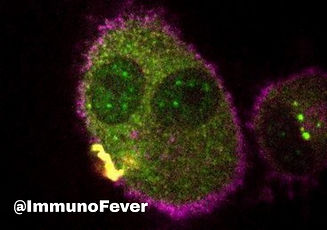
What Is MCAS
Mast Cell Activation Syndrome
Mast cells are a type of blood cell that play a vital role in the body’s immune system. Located in every organ and connective tissue, these cells react to foreign bodies and are designed to release a variety of potent chemical mediators, such as histamine, when activated. In a healthy person, mast cells help the body fight against disease and infection. In a person that has Mast Cell Activation Syndrome (MCAS), however, these cells are over-reactive and actually attack the body.
What is Mast Cell
Those suffering from MCAS experience different auto-inflammatory processes or autoimmune illnesses that affect the body in various ways. While the symptoms of MCAS vary, some of the most common side effects include abdominal pain, anaphylaxis, nausea, panic attacks, chronic fatigue and food intolerances. Studies show that as many as one in every six to seven individuals, or 14-17% of the population, is affected by MCAS. Because the symptoms of MCAS often mirror other ailments, medical professionals frequently have a hard time diagnosing this disease.


Symptoms
MCAS is just one of the many co-infections associated with Lyme disease, and has the potential to impact every system in the body. Often triggered by infections, allergens, environmental factors, exercise, and even emotional stress, MCAS can cause rashes, lip swelling, digestive issues and heart palpitations, as well as a plethora of other symptoms.
Resources For MCAS
Recent publications and presentations by Theoharis C. Theoharides, Ph.D, M.D.
Never Bet Against Occam: Mast Cell Activation Disease and the Modern Epidemics of Chronic Illness and Medical Complexity by Lawrence B. Afrin M.D.
Recent blogs and articles written by Lonnie Marcum, Physical Therapist, Science Writer for Lymedisease.org.
Recent blogs and YouTube series written by Savannah Marcum, Lyme disease and MCAS patient.

